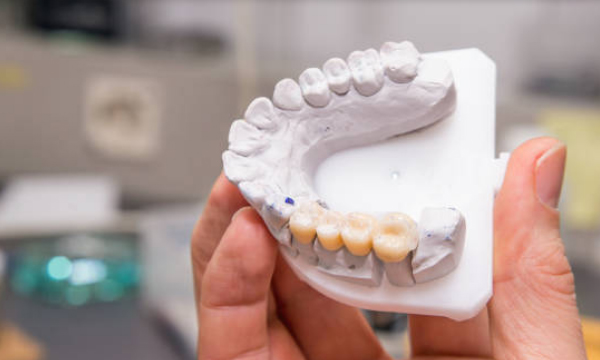Can Teeth Under a Dental Bridge Become Infected?
Our Milton dentist is here to help you protect both your smile and your restoration.
A popular option in restorative dentistry, a bridge is a type of dental prosthetic that is used to replace one or several of a patient’s consecutive missing natural teeth. These restorations are often crafted from porcelain material, and generally consist of an artificial tooth (referred to as a “pontic”) fixed between two crowns.
These crowns on either end the bridge are placed over the patient’s healthy teeth adjacent to the gap created from a lost tooth. The pontic is situated between the crowns, where the patient’s natural tooth once was. This is how a dental bridge restores missing teeth and brings function back to the smile.
But with that being said, there are several reasons why a dental bridge may not be appropriate for every patient - and this includes the potential for supporting teeth to become infected or damaged.
How the teeth under a dental bridge may become infected
The teeth below a dental bridge become most at risk for infection via tooth decay or gum disease when a patient has poor oral hygiene, consumes a poor diet that is particularly high in sugars or processed foods, or when effective cleaning becomes more difficult to do due to the bridge being ill-fitted (which can also lead to swollen gums and an impeded bite - infection aside).
Once tooth decay begins at the margin of the bridge, it can then progress below and inside of the dental crowns making up the restoration. That’s why time is of the essence: if the decay is identified and treated before it has a chance to reach the nerve of the tooth, then all that may be required is a simple bridge replacement. However, if enough time has passed and the decay has reached the nerve, an infection and potential development of an abscess is likely. In this case, a root canal treatment may be able to save the tooth from extraction if there is still enough healthy tooth structure present.
So, if a patient experiences any degree of tooth sensitivity with a dental bridge, it’s important to bring this to the attention your dentist sooner than later. Early intervention will help to ensure both your oral health and the longevity of your dental bridge restoration.
Are allergic reactions to Invisalign® clear aligners possible?
Simply put, yes, an allergic reaction to Invisalign® is a possibility - but the good news is that it’s extremely unlikely. Most people have no problems with Invisalign® and its materials, with only a minuscule percentage of wearers experiencing nothing more serious than some mild irritation.
For the very few that do experience a negative reaction with Invisalign®, this tends to come in the form of a salivary issue - with the mouth experiencing a dryer environment (or “xerostomia”) which can make wearing the device uncomfortable and irritating.
Preventing oral infection surrounding dental bridges
A good oral hygiene routine to prevent infection of the teeth and gums requires that you gently brush your teeth twice a day for two full minutes, in addition to flossing once a day - and always be sure to pay special attention to the area beneath the bridge where the missing tooth or teeth reside.
Furthermore, you should ensure that you’re visiting the dentist and hygienist every six to nine months for a check-up and professional cleaning, as any decay beneath a bridge will not likely be detectable with the naked eye. It’s also beneficial to ask your dentist about special flossing tools designed to effectively clean the gap between the gums, as well as the pontic of the dental bridge.
With these daily efforts, most patients with a dental bridge will be able to successfully prevent the occurrence of infection underneath or surrounding their restoration.
What to do if you suffer dry mouth from Invisalign® treatment
Patients who experience xerostomia with the use of their aligners can relieve their symptoms through mouth-moistening efforts, such as drinking more water (ideally cold water). It’s okay if you must exceed the recommended eight 8-ounce glasses of water daily, as well - if you find that this successfully provides you with relief from your dry mouth. Besides, drinking more water is one of the healthiest changes you can make for your smile and your body!
Looking to restore your smile with a dental bridge in Milton?
Our dentist and team at Southview Dental would be happy to help! Schedule your dental bridge consultation with us today.
